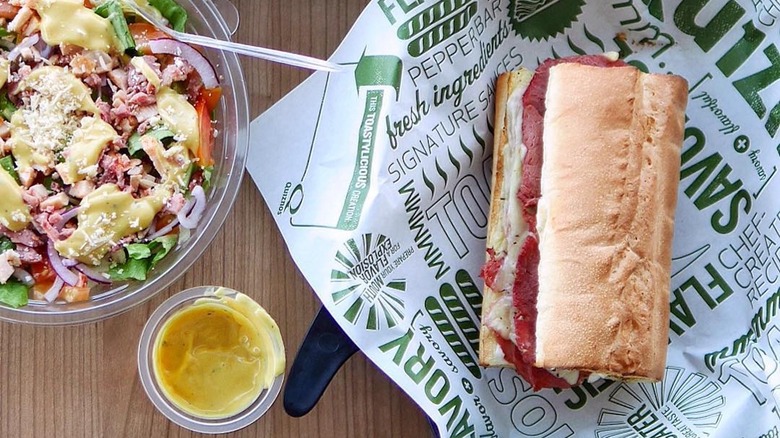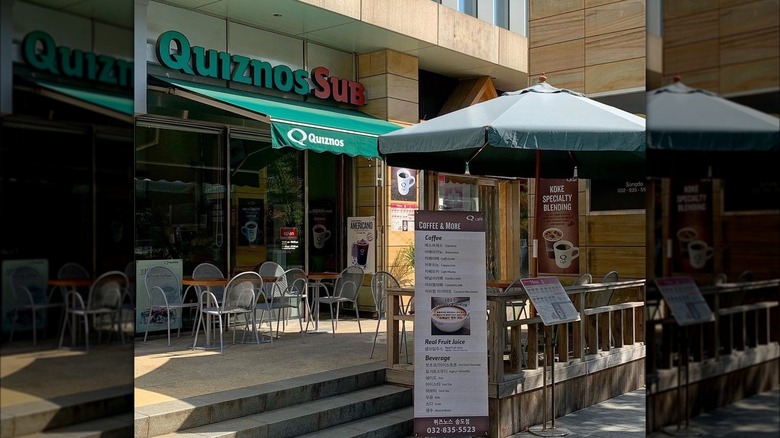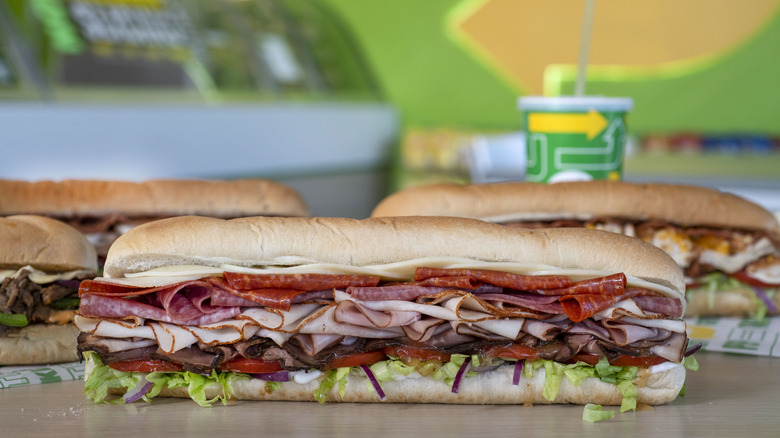Whatever Happened To Quiznos Sandwich Shops?
There is no restaurant chain that embodies the "Oh, How the Mighty Have Fallen" quite like Quiznos. Once a force to be reckoned with in the quick-service casual food space, Quiznos sandwich shops are now few and far between; at its 2007 peak, there were about 4700 Quiznos stores in operation throughout the United States. But, in an abnormally rapid downward spiral, that number dropped to 400 by 2017. As of 2024, there are a mere 148 Quiznos locations still standing—a dismal 3% of that 2007 peak. The story of Quiznos' downfall has even become a common case study in how, or how not, to operate a business.
So what actually happened to Quiznos? The answer involves a combination of stiffening competition, some questionable business decisions, and a bout of bad luck. The tale of Quiznos demonstrates how cutthroat the food industry can be, and that a solid sub sandwich is not always enough.
Quiznos' faulty franchising strategy
Quiznos first opened its doors in 1981 in Denver, Colorado. It became an instant hit upon opening because of one standout feature — the fact that it toasted its subs. Though toasting is now a common option at sandwich shops, at the time Quiznos was the only business doing it, giving it a competitive edge. Quiznos sold its appeal as a premium sandwich shop with high quality ingredients.
Despite the gourmet attraction of its products, Quiznos' desire for quick growth and unorthodox franchising strategy caused trouble for the company off the bat, as profit margins were consistently low for franchisees. The company would buy all its supplies at once, including ingredients and paper goods, sell them to franchisees at inflated prices, and set the retail prices close to cost. It was difficult off the bat for franchisees to break even, let alone make a profit. In 2006, 28 Quiznos franchise operators filed a class action lawsuit against the company, claiming it had, according to Pioneer Press, "systematically defrauded its franchisees in a scheme designed to build the brand at the expense of the storeowners."
Quiznos could not stand out among competitors
If building a brand on a faulty franchising foundation was not enough, Quiznos then cracked under the pressure of rivalry. In Quiznos' heyday, its most fierce competitor was none other than Subway, which has had its own brushes with controversy, from its bread and tuna to Jared Fogle. In 2005, the opposing sandwich shop had toasters installed at all its locations, taking away Quiznos' unique advantage. Then, Subway came out with its hit $5 Footlong deal. Quiznos retaliated by rolling out free sandwich coupons to customers, but when the already frustrated franchise operators refused to accept these coupons, once-loyal customers were turned off the brand.
Then, the Great Recession hit. Potential customers had to cut back on takeout, and those who were still outsourcing their meals were turning to eateries with better deals; in the case of sandwich shops, Subway was often the winner. Even today, $10 can go pretty far at Subway. Subway is not a perfect company—some foodies will always swear that sandwiches taste better from a deli—but it was strong enough to knock the once mighty Quiznos down many pegs. Quiznos franchises continued falling like dominoes. Though economic climate and competition are normal, and often uncontrollable, factors in the performance of a company, franchising strategy is one that was uniquely detrimental to Quiznos.


